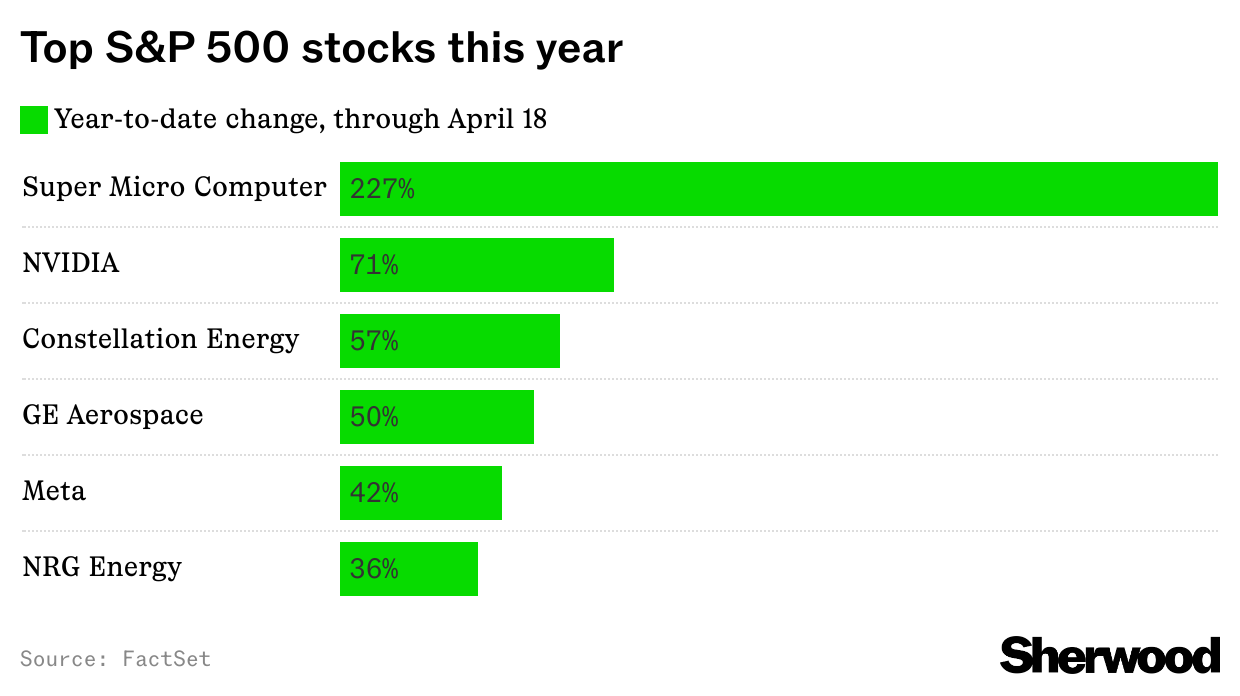Hey Snackers,
Treasury Secretary Janet Yellen keeps being gifted rare stamps from foreign diplomats, who are convinced she’s an avid collector. Spoiler: she isn’t. Her brother says, “Stamps really don’t mean anything to Janet at all.” It’s the thought that counts?
Stocks fell yesterday as investors braced for another “jumbo” rate hike. The Fed’s expected to raise rates by 75 basis points at its meeting today.
Playbook
Spotify launches an audiobook business, taking on Amazon and Apple in its quest for profitable growth
“Spooky vibes” playlist... feat. Stephen King. Yesterday Spotify launched an audiobook service to US users. The catalog has 300K+ titles from independent authors and major publishers like Penguin Random House. But your monthly subscription isn’t enough to download that Taylor Jenkins Reid best-seller:
- Pay per download: You pay for each audiobook à la carte (prices vary). Malcolm Gladwell's "Talking to Strangers" = $21.90 + tax.
- Web-only: Inconveniently, you can't download books through the app (only on the web). Spotify has beef with Apple's in-app commissions and is avoiding the 30% "App tax."
- Made for you: Eventually Spotify wants to curate audiobooks the same way its algorithms recommend tunes based on your listening habits.
"Dune" on the I-90... Audiobooks are experiencing a growth chapter: audiobook revenues hit $1.7B last year — up 25% from 2020. Spotify believes the audiobook market has massive growth potential that could help drive profits. In July, it bought audiobook distributor Findaway for $119M. But there’s competition in this lucrative market…
- Top charts: Amazon’s Audible is by far the largest audiobook retailer (about half of US sales in April). Apple’s and Google’s pay-per-book platforms are also popular.
- Top concerns: Spotify has significantly grown subscribers and content (think: massive pod investments) but has never made an annual profit. The stock’s down 60% this year (lower than its IPO price).
A big player can change the playbook… As the curated-playlist OG, Spotify revolutionized how we listen to music. By taking a novel approach to audiobooks, it could transform that “B-list” product, too (audiobooks still represent less than 7% of the worldwide book market). With its 188M loyal paying subscribers, Spotify could become a hub for book recommendations and bonus content (think: author-curated playlists) and expand the global audiobook audience.
Masstige
JCPenney phases out Sephora mini-shops and expands its own beauty stores in a shift to “masstige” cosmetics
3 jeans, 2 glosses… 1 trip. As JCPenney’s mini-shop partnership with Sephora comes to a close, the department-store chain is building its own beauty foundation. Last year JCP launched JCPenney Beauty shops in 10 stores and online, showcasing 250+ makeup and skincare brands. Its debut was designed to offset the end of the Sephora contract:
- Old digs: JCP’s Sephora partnership once included 570+ shops-within-shops (#InceptionRetail) and contributed to nearly 15% of its prepandemic revenue.
- New digs: JCP is expected to open 300 more mini beauty stores (complete with in-department salons) by early 2023 and another 300 in the spring.
Prime(r) real estate… Department stores are prime territory for beauty brands to attract on-the-go shoppers. Last month Kohl's announced plans to expand Sephora mini-shops across its 1.1K US locations (which it expects will yield $2B in sales by 2025). Meanwhile, rival Ulta plans to open 800 more of its stores-within-stores at Target.
- Affordability: JCP wants to differentiate by offering more inclusive products and prices, shifting its focus from Sephora’s premium brands (think: Bobbi Brown, MAC).
- Inclusivity: Nearly 20% of JCP Beauty’s products come from Thirteen Lune, a site featuring 100+ BIPOC-founded brands. JCP is also adding indie brands that have never been sold in major retailers.
Masstige > prestige… JCP’s Beauty focuses on mass-produced brands that are affordable, innovative, and inclusive. With beauty fans still splurging on cosmetics (see: lipstick index), “masstige” retailers are luring shoppers with affordability and variety. Last quarter, budget brand E.L.F. grew sales 26% — more than double what Wall Street expected — despite keeping prices low on best-sellers.
What else we’re Snackin’
- Charge: Electric-car rentals are getting juiced up: airport staple Hertz agreed to buy 175K EVs from GM in the next five years. GM aims to sell 1M EVs in North America in 2025 — 25X more than it sells now.
- Hack: Uber blamed its recent data breach on Lapsus$, a teenage hacker collective that often seeks publicity, not cash. Lapsus$ has also hacked Microsoft, Nvidia, Cisco, Okta, and Samsung.
- Meaty: Beyond Meat shares sank to a record low yesterday after the COO of the faux-meat maker was arrested over the weekend in connection with biting a man's (real-meat) nose in a road-rage incident.
- Pledge: Amazon, Pfizer, Hilton, and Marriott have committed to hiring 20K refugees in the next three years. About 150K refugees from Ukraine and 80K from Afghanistan have arrived in the US this year.
- Loot: Hackers reportedly stole $160M from DeFi market maker Wintermute. The CEO's hoping the thief will return the crypto for a payout (think: hack to return). $2B has been lost to crypto hacks this year through July.
Wednesday
- Fed’s interest-rate decision expected
- Earnings expected from General Mills, Lennar, Trip.com, H.B. Fuller Co., and KB Home
Authors of this Snacks own: shares of Amazon, Apple, GM, Google, Microsoft, Spotify, Nvidia, and Uber
ID: 2435390
.png)

